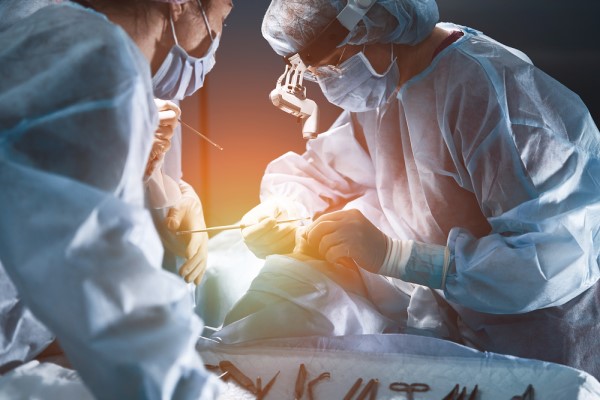What Is Reconstructive Plastic Surgery and When Is It Needed?

Reconstructive plastic surgery restores appearance and function to parts of the body affected by injury, illness, chronic medical conditions, burns, or traumatic injury. Numerous surgical procedures fall under the category of reconstructive surgery, and each corrects a specific kind of imperfection.
However, it often takes one or more procedures to correct a deformity, scar, or imperfection. So, in what kinds of situations does a person need reconstructive surgery?
What reconstructive plastic surgery can do
Reconstructive surgery is generally considered to be medically necessary. It forms part of a larger treatment plan to treat deformities and imperfections caused by injury, illness, congenital defects, and developmental abnormalities.
Many procedures fall under the umbrella of reconstructive surgery:
- Scar revision to reduce the prominence of scars after injury or illness
- Skin grafts to help patients who suffer from burns or other forms of skin loss or damage
- Facial reconstruction to repair damage caused by severe trauma to the face
- Orthopedic reconstruction to repair deformity caused by injury or illness
- Cleft palate repair, which improves the appearance and function of a person’s mouth
- Craniofacial reconstruction to correct injury or deformity caused by congenital or developmental abnormalities
- Breast reconstruction for patients who have gone through lumpectomies or mastectomies
- Excisions to remove cancerous skin cells
When does reconstructive surgery become a necessity?
Some patients need reconstructive surgery to live their everyday life. Suppose that a person has a cleft palate. They may have problems with talking and eating. Their teeth typically will also not grow well, and they may be prone to chronic infections. They can be helped by cleft palate reconstruction, which creates the standard connections that the palate should have in the mouth.
Similarly, a person with a bone disorder that has deformed their leg could benefit from orthopedic reconstruction. Surgical intervention can restore function to the leg, and physical therapy can improve the person’s gait and mobility.
Trauma to the face sometimes results in damaged nerves, bones, and soft tissue. The face may have scarring and structural deformity. If a person suffers nerve damage to the face, they will likely suffer from some form of paralysis, which may cause difficulties with speaking, smiling, and eating. A plastic surgeon can create a treatment plan to reverse as much of the damage as possible and restore the appearance and function of the patient's face.
Frequently asked questions about reconstructive surgery
Many people are thinking about getting reconstructive surgery. Here are answers to common concerns and questions that patients have.
Q: What is reconstructive plastic surgery?
A: Reconstructive plastic surgery is a type of surgery that helps improve function and appearance. It can be done on any part of the body but is commonly done on the face, hands, and breasts.
Q: Who is a good candidate for reconstructive plastic surgery?
A: Anyone with a deformity or disfigurement that causes functional or psychological problems may be a good candidate for reconstructive plastic surgery.
Q: What are popular procedures?
A: Common procedures include breast reconstruction following mastectomy, hand surgery to correct deformities caused by injuries, and facial reconstruction following trauma or cancer surgery.
Q: How long does it take to recover from reconstructive plastic surgery?
A: Recovery times vary depending on the type of procedure that was performed. Some people may be able to go back home the same day, while others may need to remain in the hospital for a few days. Patients should expect swelling and bruising after surgery, which can take several weeks to resolve.
Q: Are there any risks involved with reconstructive plastic surgery?
A: As with any type of surgery, risks are always involved. These include bleeding, infection, and reactions to anesthesia. However, serious complications are rare. The surgeon will discuss all potential risks with the patient before the procedure. Simple things like not consuming alcohol leading to the surgery date can help minimize the risk of complications.
Reconstructive surgery can help patients reclaim their lives
You may be suffering the effects of a congenital deformity, or the aftermath of a traumatic injury may have left a lingering imperfection. Any of these situations may be limiting your self-confidence. Reconstructive plastic surgery can help restore the part of your body that is affecting your everyday life. Contact us today to make an appointment with a plastic surgeon. During this initial consultation, you and the surgeon can discuss your goals and go over possible treatment plans.
Request an appointment here: https://www.paulcdillonmd.com or call Paul C. Dillon, MD Inc at (847) 429-3185 for an appointment in our Schaumburg office.
Check out what others are saying about our services on Yelp: Read our Yelp reviews.
Recent Posts
Hair loss can make many people lose confidence in their appearance. Fortunately, hair transplants can address these concerns. When searching the phrase "hair transplant near me," it can be hard to know where and how to get started. Fortunately, we are here to help provide a way to help improve your self-esteem and overall well-being…
Nose surgery reshapes nasal structures to enhance breathing, facial balance, and confidence. As a plastic surgery procedure, this can address a hump, a wide tip, crookedness, or airway blockage caused by a deviated septum. During a consultation, the surgeon evaluates nasal anatomy, skin thickness, and proportions relative to the chin and cheeks. Clear goals guide…
A breast lift reshapes and raises the bust, while breast augmentation increases volume and enhances contours. While both procedures improve the breasts ' appearance, they serve different purposes. When exploring these options, it helps to understand how each one works, when one may be more beneficial over the other, and when the plastic surgeon may…
In recent years, there have been major changes in the methods for unwanted hair removal, offering individuals several options for smooth, hair-free skin. Two of the most popular treatments, laser hair removal and waxing, are known for their effectiveness and for providing long-term results. While both methods focus on reducing hair, they differ in their…


